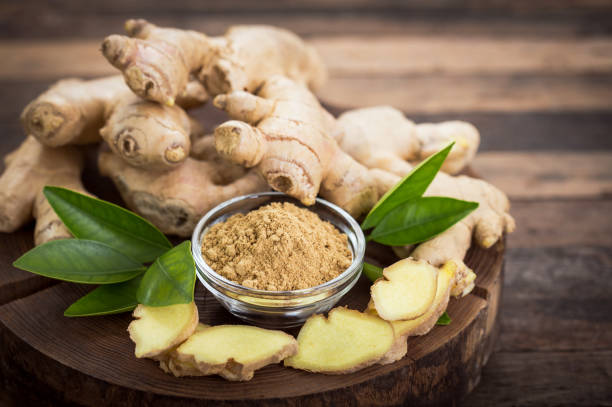Ginger, a knobby, aromatic root, has been cherished for centuries not only for its unique flavor but also for its incredible health benefits. From its humble agricultural origins to its remarkable medicinal properties, ginger has earned a special place in both the culinary and wellness worlds. In this post, we will explore the agricultural background of this versatile plant and delve into the numerous ways it can promote health and well-being.See our free medical sessions
Ginger’s Agricultural Roots: Ginger (Zingiber officinale) is native to Southeast Asia, where it has been cultivated for over 5,000 years. Its journey began in the tropical rainforests of India and Malaysia before spreading to other parts of the world. Ginger thrives in warm, humid climates and is now cultivated in countries like China, India, Indonesia, and Nigeria.See our free medical sessions
The ginger plant is characterized by its tall, reed-like stems, lance-shaped leaves, and clusters of yellow-green flowers. However, it is the underground rhizome, the knobby part we commonly refer to as ginger, that holds the plant’s true treasure. This rhizome is harvested, cleaned, and processed for culinary and medicinal purposes.See our free medical sessions
Health Benefits of Ginger:
- Digestive Aid: Ginger is renowned for its ability to soothe digestive discomfort. It helps alleviate nausea, indigestion, and motion sickness. Ginger tea or ginger chews can be particularly effective for these purposes.
- Anti-Inflammatory Properties: Ginger contains potent anti-inflammatory compounds called gingerols. These compounds can help reduce inflammation in the body, making ginger a valuable ally in managing conditions like osteoarthritis and muscle pain.
- Immune Support: The antioxidants in ginger, along with its natural antibiotic properties, make it a great choice for boosting the immune system. Consuming ginger can help your body defend against infections and promote overall well-being.
- Pain Relief: Ginger has been found to have analgesic properties, which means it can help reduce pain. It is often recommended for menstrual pain, migraines, and general aches and pains.See our free medical sessions
- Cardiovascular Health: Some studies suggest that ginger may help lower blood pressure and reduce the risk of heart disease by improving blood circulation and reducing cholesterol levels.See our free medical sessions
- Weight Management: Ginger can aid in weight management by increasing metabolism and reducing appetite. Including ginger in your diet may help you achieve your weight loss goals.See our free medical sessions
- Anti-Nausea: Pregnant women and those undergoing chemotherapy often turn to ginger to alleviate nausea and vomiting.See our free medical sessions
Incorporating Ginger into Your Diet:
There are countless ways to enjoy ginger’s health benefits in your daily life. You can add it to your meals as a spice or make it into ginger tea by steeping slices of fresh ginger in hot water. Ginger can also be used in smoothies, soups, and stir-fries for a burst of flavor and nutrition. For a sweet treat with a spicy kick, try ginger-infused desserts like gingerbread cookies or ginger snaps.See our free medical sessions
Ginger’s rich agricultural history and remarkable health benefits make it a true superfood. Whether you’re sipping on ginger tea to ease a stomachache or adding it to your dishes for a burst of flavor and nutrition, ginger has much to offer. Embrace this ancient spice and let it nourish and heal your body from the inside out. See our free medical sessions


